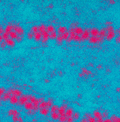 The WHO says that intensification and expansion of irrigated rice production systems in South and South-East Asia in recent decades have increased the risk of Japanese encephalitis. “Where irrigation expands into semi-arid areas, the flooding of the fields at the start of each cropping cycle leads to an explosive build-up of the mosquito population. This may cause the circulation of the virus to spill over from their usual hosts (birds and pigs) into the human population,” the Organisation states.
The WHO says that intensification and expansion of irrigated rice production systems in South and South-East Asia in recent decades have increased the risk of Japanese encephalitis. “Where irrigation expands into semi-arid areas, the flooding of the fields at the start of each cropping cycle leads to an explosive build-up of the mosquito population. This may cause the circulation of the virus to spill over from their usual hosts (birds and pigs) into the human population,” the Organisation states.
Most cases are mild, causing fever and headache, but approximately one in 200 infections results in severe disease. This is typically characterized by the rapid onset of high fever, headache, neck stiffness, disorientation, coma, seizures, spastic paralysis and death. The case fatality rate can be as high as 60% among those with disease symptoms; 30% of those who survive suffer from lasting damage to the central nervous system.
In high-risk areas, encephalitis occurs mainly in young children because older children and adults have already been infected and are immune.
Vaccines are available against the virus which causes Japanese Encephalitis and the use of repellants and mosquito nets are also effective under certain conditions.
Click here to read more about Japanese encephalitis
This article is part of a series compiled by Vaccines Today to raise awareness of European Immunization Week 2011 which runs from 23-30 April





Anna
June 29th, 2011
I just wanted to comment and say that I really enjoyed reading your blog post here. It was very informative and I also digg the way you write! Keep it up and I’ll be back to read more in the future